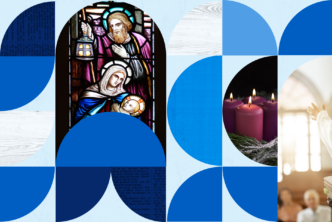Samuel Pearce was a Baptist pastor known in eighteenth-century England for his moving preaching and strong, pious character. In his short life, he supported believers in his own parish and in the many cities where he preached and helped send missionaries. Yet his personal faith, founded on the “holy love” of God, formed his most compelling witness to the world.
In Loving God and Neighbor with Samuel Pearce by Michael A. G. Haykin, readers learn from Pearce’s example what it looks like to love God and neighbor—in good times as well as challenging and seemingly mundane ones.
***
On December 7, 1796, Pearce was asked to preach the sermon to the congregation at the installation of William Belsher as pastor of the Baptist Church in Silver Street, Worcester. The church had been without a pastor for five years, and this was obviously a high point for the congregation. Belsher, like Pearce, was a graduate of the Bristol Baptist Academy, and within a few years, the church membership had quadrupled.
Pearce’s good friend, John Ryland Jr., gave the charge to Belsher, which he called “The Duty of Ministers to Be Nursing Fathers to the Church.” Pearce’s sermon was titled “The Duty of Churches to Regard Ministers as the Gift of Christ,” and it offers an excellent vantage point to think about Pearce’s view of the pastorate. His text was Ephesians 4:11: “And he gave some, [to be] apostles; and some, prophets; and some, evangelists; and some, pastors and teachers.”
He began by noting that the giving of these gifts by the risen Christ to his Church had been predicted in Psalm 68:18, which Paul cites in Ephesians 4:8 as well as in Jeremiah 3:15: “I will give you pastors according to mine heart, which shall feed you with knowledge and understanding.” Some of these gifts had a limited duration. Apostles and prophets, “in the strict sense of these terms”—that is, in the technical usage of these words—“are no longer upon earth, because the peculiar and miraculous powers with which they were invested are no longer necessary in the Church.” Here, Pearce is building upon a standard Protestant interpretation of Ephesians 4:11: apostles and prophets were part of the church’s life in the first century when their miraculous powers helped to confirm their promulgation of the gospel.
The gospel is now established as true, and thus they are no longer needed. This interpretation was framed in the debate between the Reformers and apologists for the Roman Catholic Church during the sixteenth century, when the latter appealed to the presence of the miracles of the saints as proof of the veracity of its teaching and asked the Reformers, “If what you teach is true, where are the miracles to back it up?” Undoubtedly Pearce could have said more in this sermon as to why apostles and prophets were no longer being given to the church, but he adhered to his purpose: to speak to the Worcester congregation about what it means to have a pastor. As he then noted in his introductory remarks:
Ministers of Christ, my brethren, like most other blessings, are over-valued by some, and held in too little esteem by others; happy will it be, if you are enabled to find out, and preserve, the medium between those extremes.… The passage I have selected, places your minister exactly in that point of view, in which you cannot behold him without respect, at the same time that it secures you from esteeming the servant above his Lord: it teaches you to regard him as a gift; but, at the same time, a gift not to be despised; for he is the gift of Christ.
This passage suggested first of all to Pearce that Christ cares for his people. He so loves them as to give them pastors who will teach and instruct them. But Pearce believed it was crucial for his hearers to remember that though their pastor was “a valuable gift,” he was nonetheless mortal and would one day pass from this earthly scene. That is not a problem for the ever-living Christ, for he can, and will, “easily replace [this] loss” through the gift of another minister—an ongoing demonstration of his care for the church.
Next, Pearce observed that pastors are gifts from Christ, and to honor Christ, one must honor them. As he admonished the Worcester Baptists:
Every good thing we enjoy cometh from above and therefore demands our thankfulness; but singular blessings demand singular acknowledgments; and, to those who know how to value it aright, there are few gifts to be more highly prized than a worthy minister. The difficulty which you, my brethren, have found in replacing your late pastor must have convinced you that a suitable successor is no common favor. A man of piety, prudence, zeal, and other ministerial gifts, is a scarce commodity, which no human labor can produce, nor wealth procure; and which, if obtained, can be only enjoyed as the gift of Christ.
Above five years you have been seeking, and, I presume, praying for a spiritual guide; your prayers are now answered; many churches in the same situation have been waiting and praying for a similar blessing; our brother might have been given to them instead of you; consider yourselves as peculiarly favored, and be peculiarly grateful.
Having a “spiritual guide” who was distinguished by “piety, prudence, zeal, and other ministerial gifts” was not to be taken for granted and called for thanksgiving. It is noteworthy that Pearce called Belsher a “spiritual guide”—in the past century or so this term normally has not been used in Baptist circles, yet here Pearce used it to identify a key aspect of being a pastor: to be a man of piety who knows how to help his people to mature spiritually.
***
This post is adapted from Loving God and Neighbor with Samuel Pearce by Michael A. G. Haykin, available now through Lexham Press.
The headings and title of this post are the additions of the editor. The author’s views do not necessarily represent those of Faithlife.





